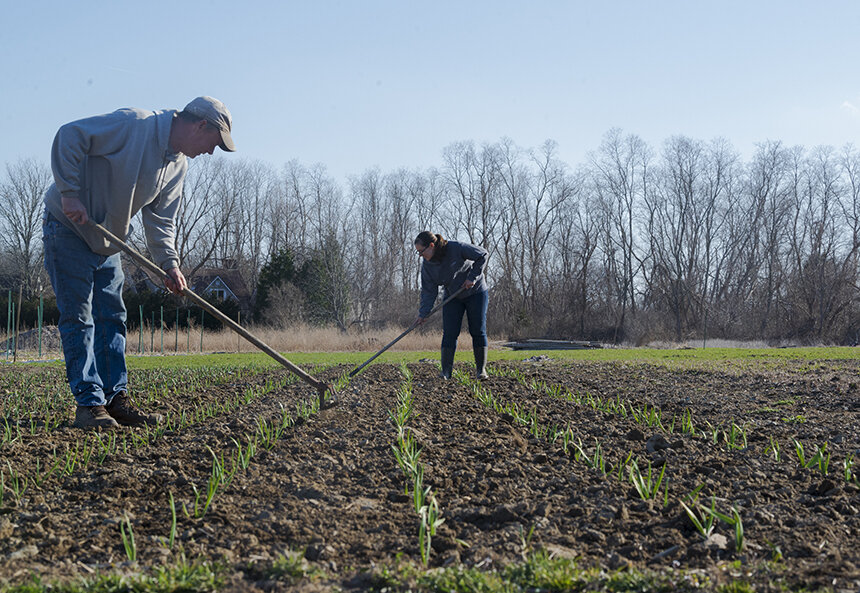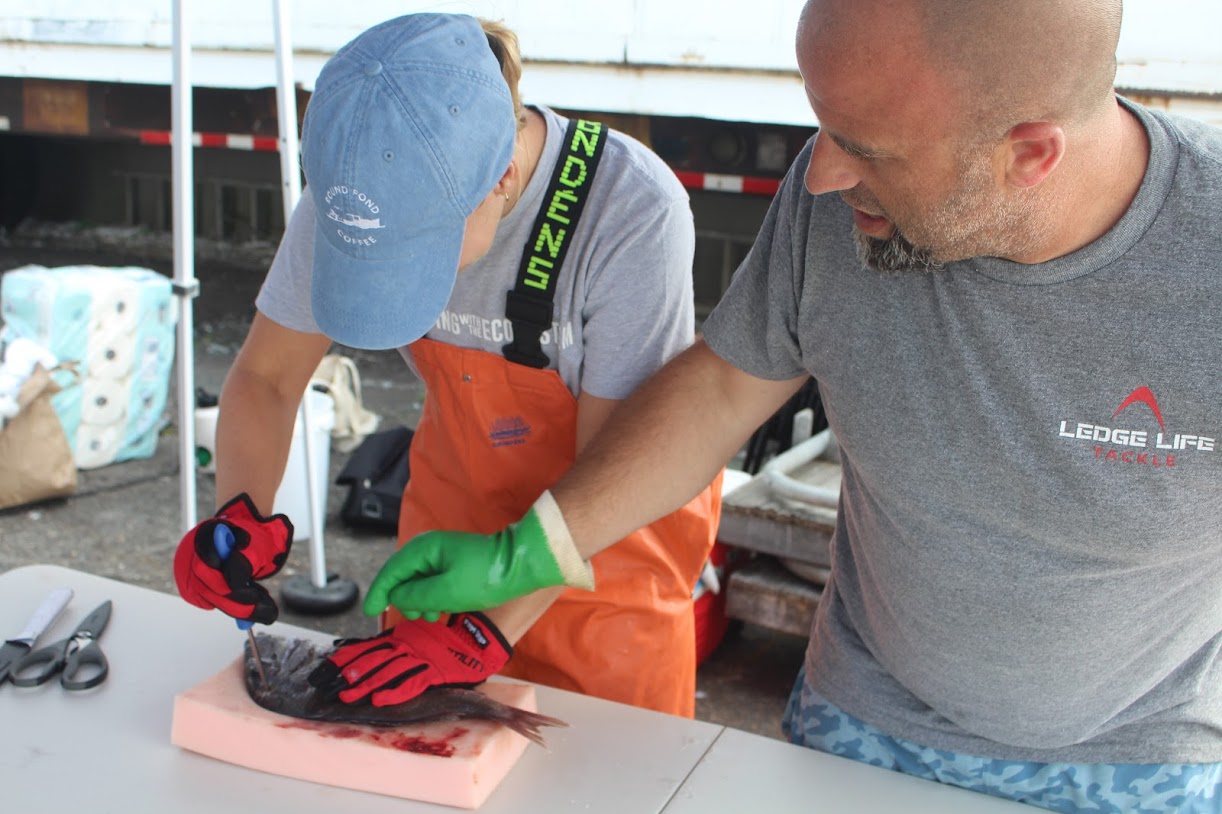Nonproft Working to Bring Hope to Local Food
October 27, 2012
WARREN, R.I. — Lisa Raiola stands in the middle of what she hopes will be one of four commercial kitchens at the now vacant Main Street School. The late-afternoon sunlight rakes through the windows, casting a glow on blank chalkboards as Raiola walks a visitor through her vision for a culinary business incubator that could be a reality by this time next year.
Nearly two weeks ago, local residents turned out in droves to a town financial meeting to support Raiola’s purchase of the school building, a purchase that is critical to the release of a $3 million low-interest loan to Raiola’s nonprofit, Hope & Main, which aims to provide aspiring chefs and food growers with access to affordable licensed commercial kitchens.
“There are a lot of champions for this idea. (The Oct. 15 vote) is a clear mandate for the local food movement,” Raiola says. “It’s about creating jobs and taking back our economy from ‘big food.’”
At the town financial meeting, Hope & Main received the required quorum of 125 voters, but Raiola recently learned that her nonprofit must clear one last hurdle — an all-day referendum scheduled for Nov. 5, in which a simple majority vote would allow the town to sell the Main Street School to Hope & Main for $125,000.
“I never thought I would do anything like this,” Raiola confesses, just three days before the vote.
The process began three years ago with a simple business idea that evolved over time to become a grand vision for energizing the local food economy.
In 2005, when she was diagnosed with advanced uterine cancer, Raiola, a Bristol resident who currently works as an administrator at Roger Williams University, told herself that “if I ever got better I would do something with nutrition.”
Eventually, she did get better, and when she did, she decided to start her own health-focused food business.
Raiola’s search for a location to house her business proved difficult. The town planner in Warren suggested she take a look at the decommissioned Main Street School as a possible location, and once she laid eyes on the place, it changed everything.
“It was like ordering a hamburger and getting a side of beef,” Raiola recalls of her first visit to the school.
In the nearly 100-year-old, 17,500-square-foot building she saw the potential to create a new kind of school, one that would help aspiring food professionals bring their ideas for new products to market, a place that would provide job training to inexperienced chefs, a place where food growers could work with vocational students to flash-freeze their harvest.
“I saw that I could create a space where lots of people could do what I was trying to do myself,” she says.
So Raiola took the money she had been planning to put toward her own for-profit business and instead invested it in a vision that would jump-start the future businesses of numerous culinary entrepreneurs.
With her money she hired architects, engineers and lawyers who evaluated traffic flow and drew 3-D renderings of the building. But foremost on her mind was finding the capital to move her idea from blueprint to reality.
Even though she had the support of the town, and even though job creation was at the heart of Hope & Main’s mission, Raiola received the cold shoulder from the state’s Economic Development Corporation (EDC) because her business plan didn’t fit its criteria.
Then, six months ago, the U.S. Department of Agriculture came through with a $3 million loan. However, in order to get the loan, Raiola, who had been working under the assumption that she would lease the building from the town, had to purchase the building outright. So, the final town-wide vote is critical to the future of her nonprofit.
Raiola is eager to move forward with the purchase so she can focus on the mission of her nonprofit. Formerly an assistant professor of public health and medical ethics at Brown University, she speaks woefully of the current food system that has spawned food desserts in urban areas and has left Americans getting most of their food from gas stations or from the center aisle of grocery stores.
Raiola speaks of reinvigorating the local food system, going back to the mercantile paradigm of food production. “All we’re trying to do is get back to how we used to live,” she says.
Once completed, Hope & Main will be integral to reclaiming the local food system — it will feature four commercial kitchens; cold and dry storage; a food processing center, where, say, farmers could flash-freeze their harvest; a business center; a room that would be available as a venue for catered events; and a teaching kitchen with video capabilities where cooks could broadcast cooking shows.
So far Hope & Main has received nearly 150 applications from aspiring culinary entrepreneurs interested in leasing space at the building. Applicants have come to Hope & Main with ideas for products that run the gamut from organic baby food to hot sauce.
And so, with the town referendum looming, the architectural drawings pasted to the walls of the Main Street School whisper of future walk-in coolers and rooftop gardens; nearly $200,000 worth of ovens and kitchen equipment lie at the ready just up the road at the American Tourister Building, and Raiola nervously anticipates the vote that will determine the future of her vision for Hope & Main.
Categories
Join the Discussion
View CommentsYour support keeps our reporters on the environmental beat.
Reader support is at the core of our nonprofit news model. Together, we can keep the environment in the headlines.
We use cookies to improve your experience and deliver personalized content. View Cookie Settings



